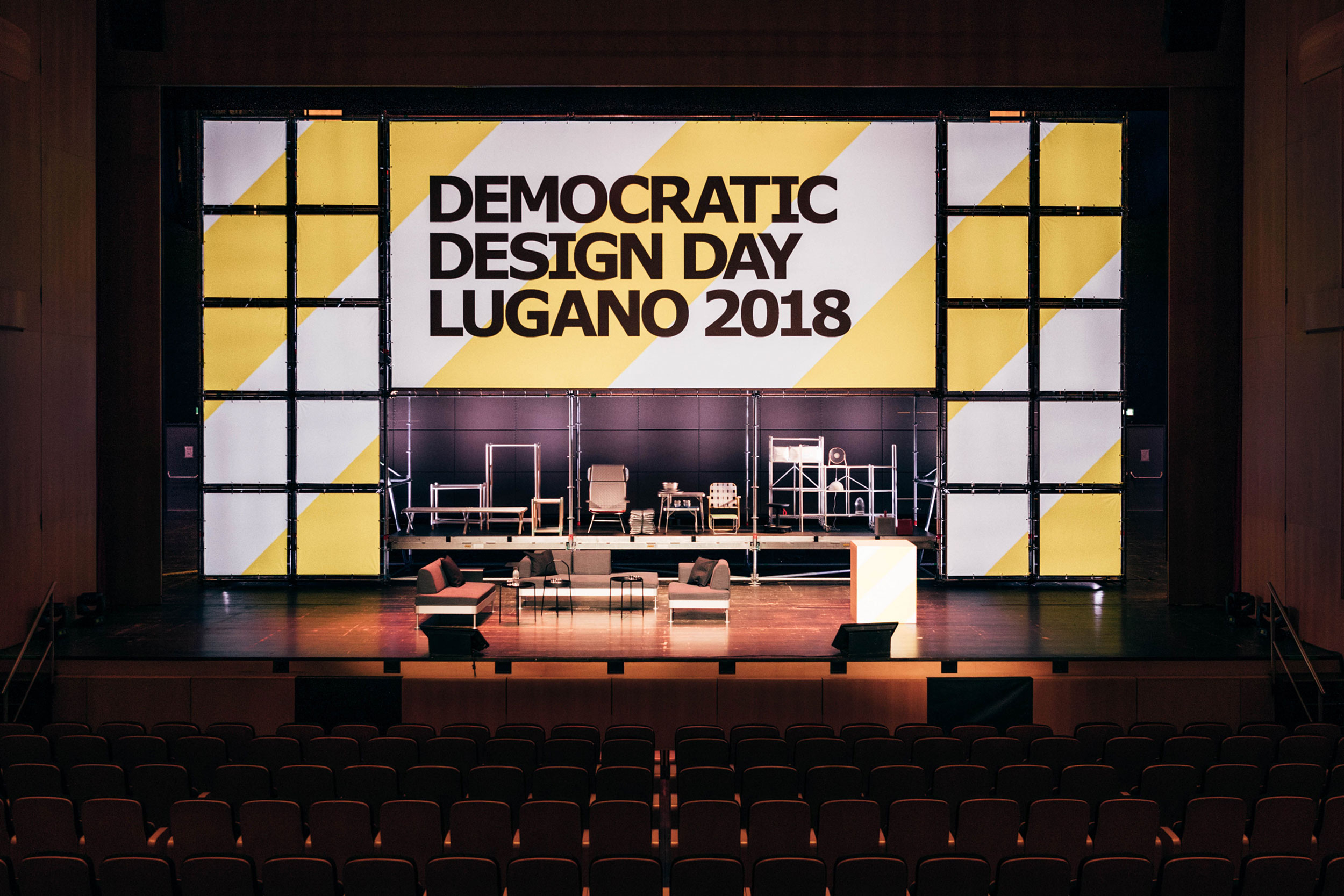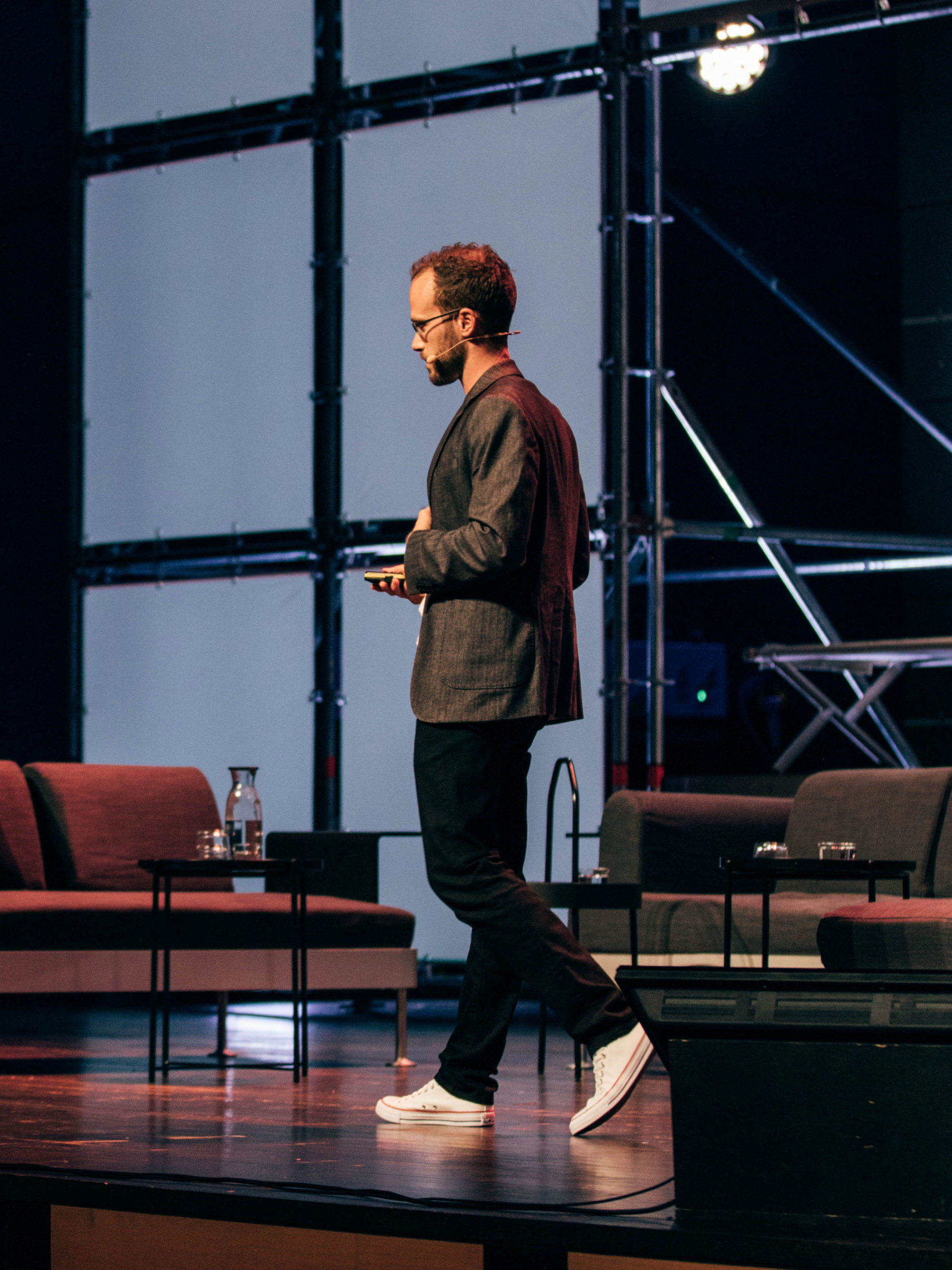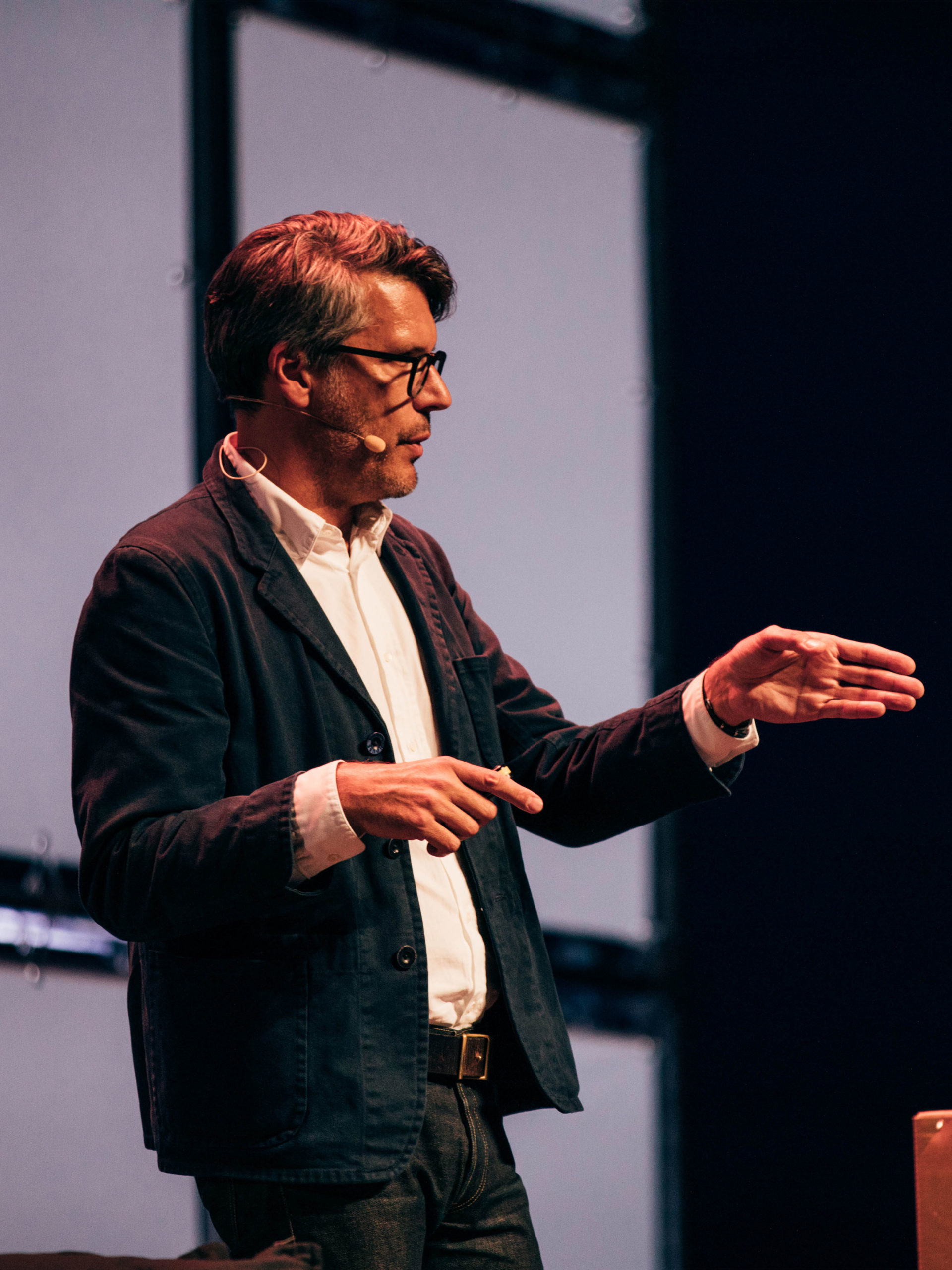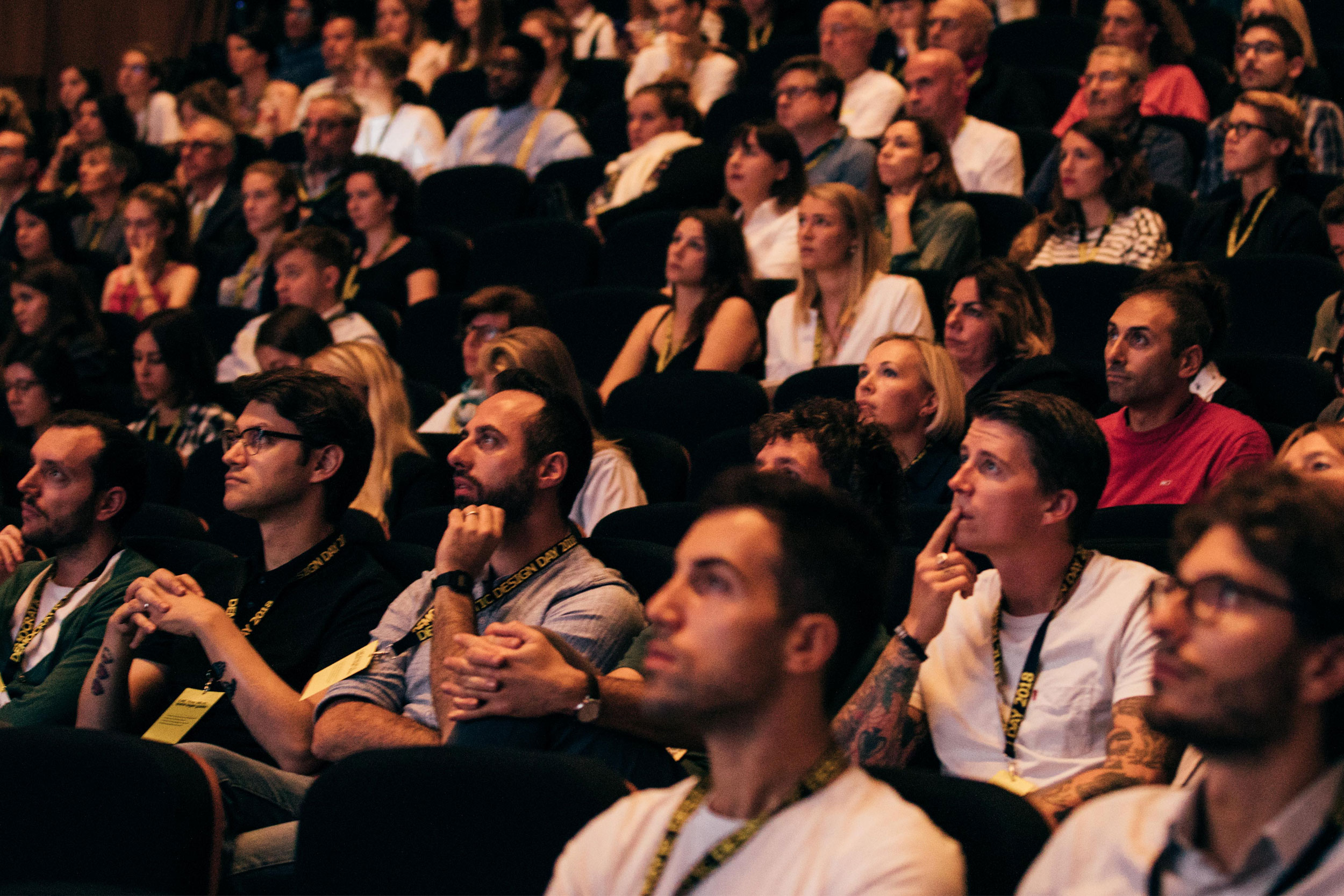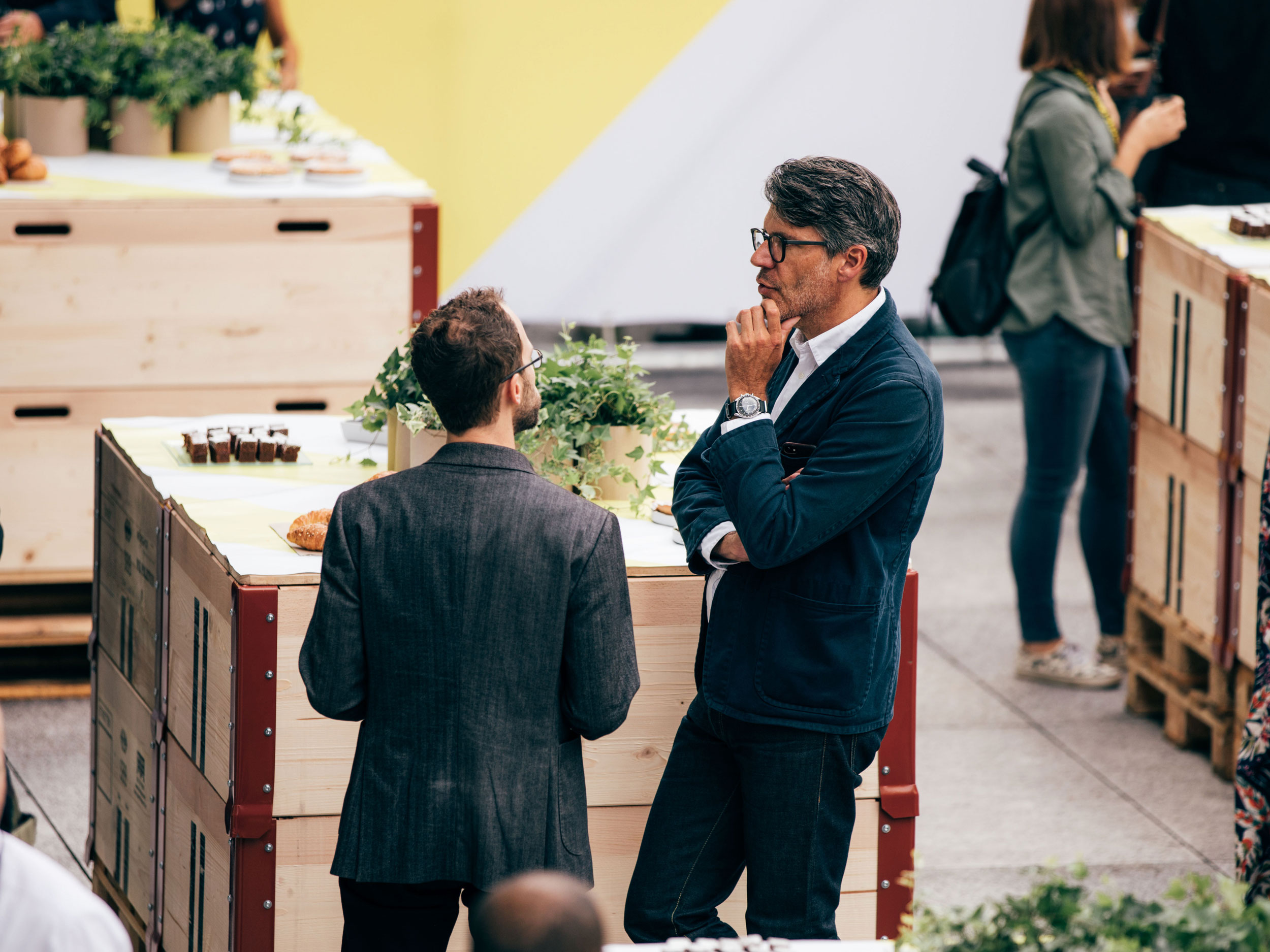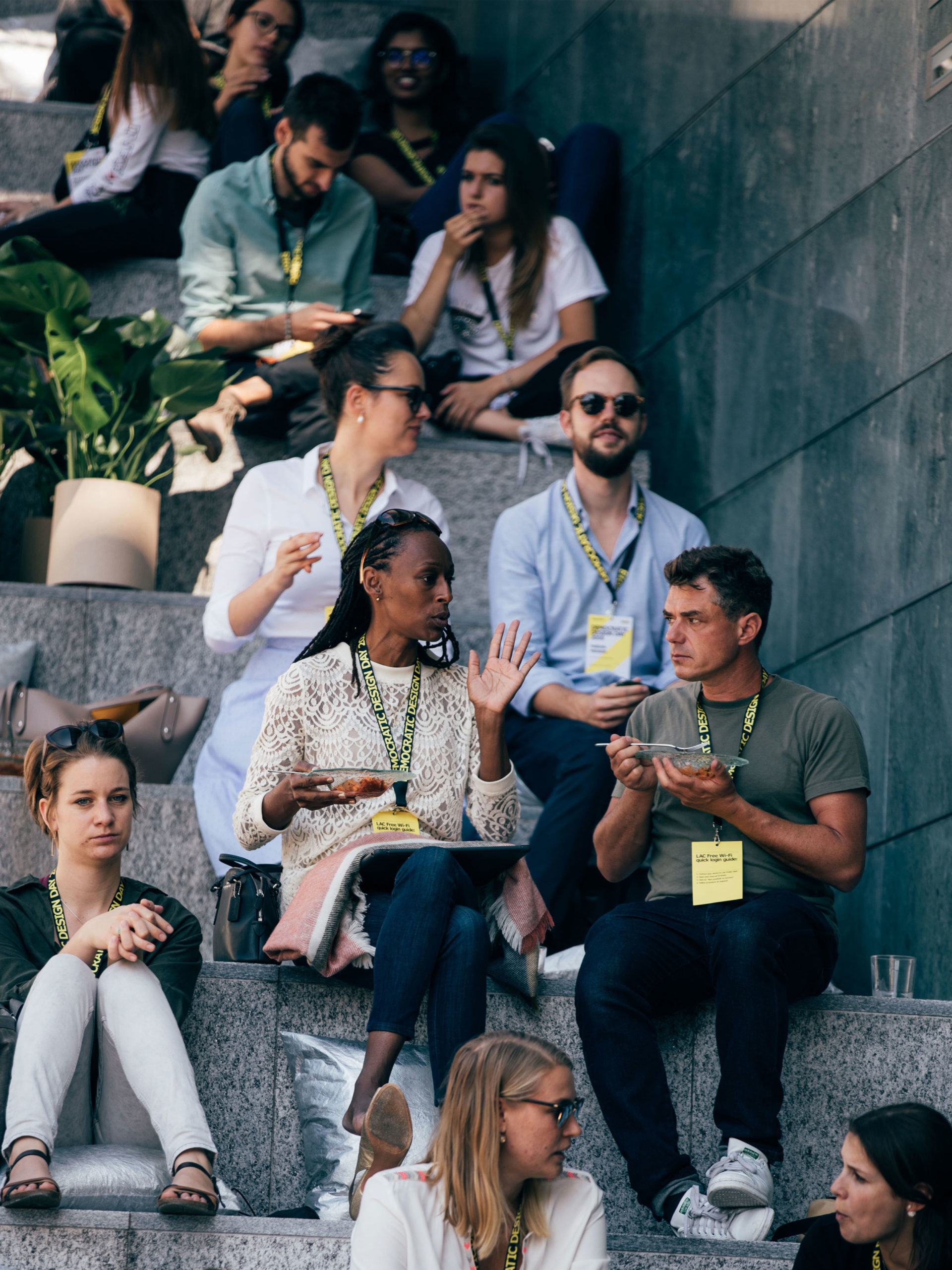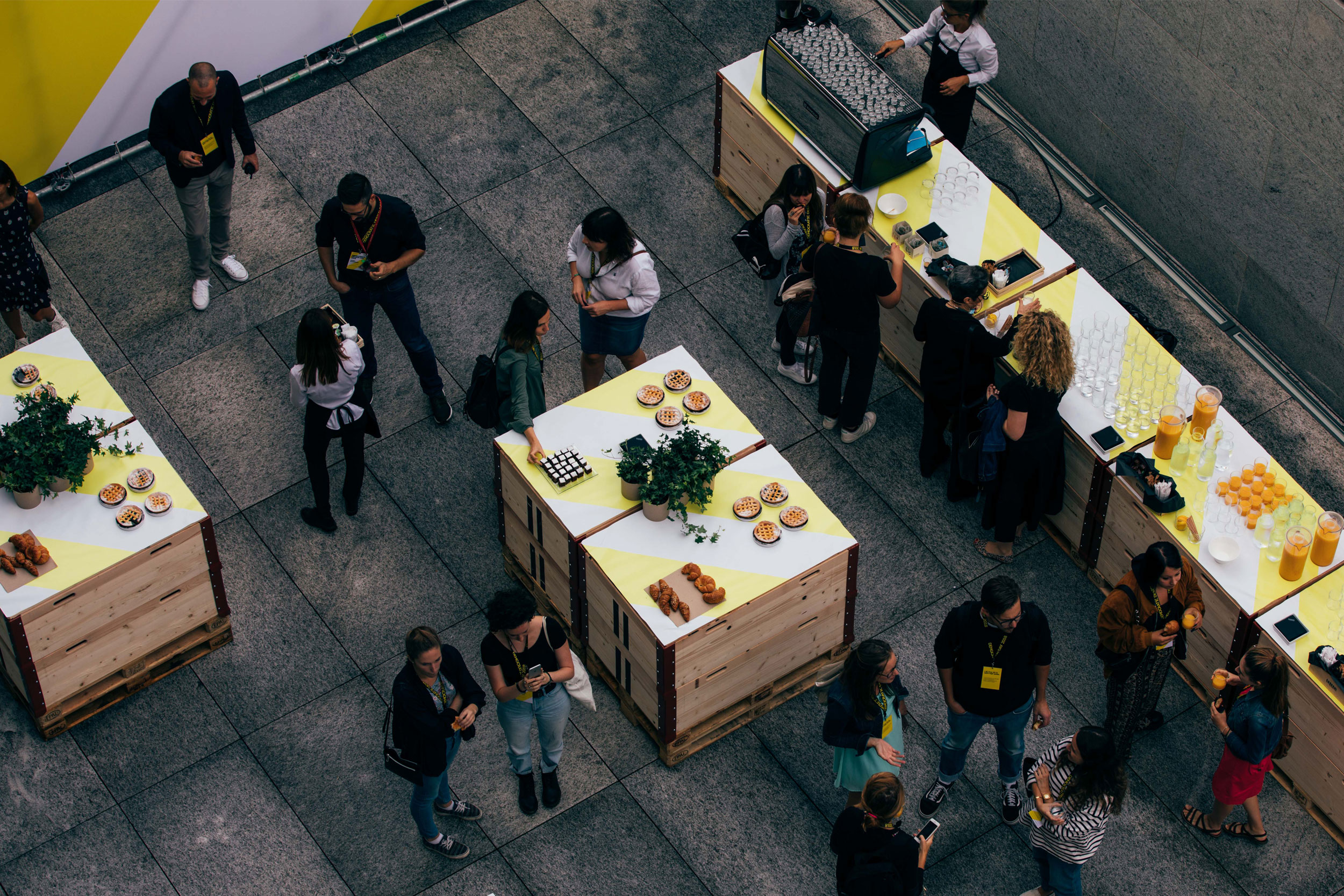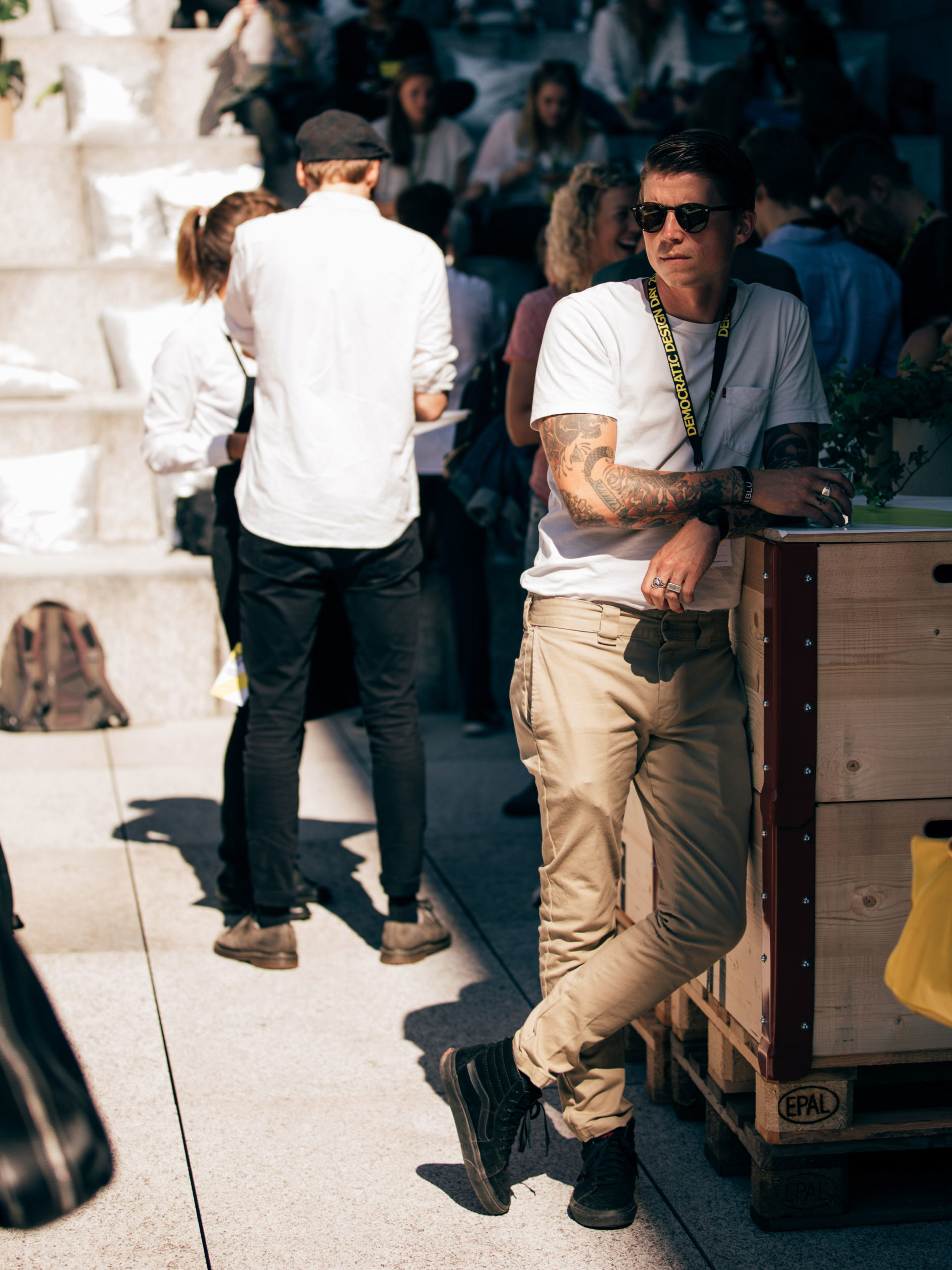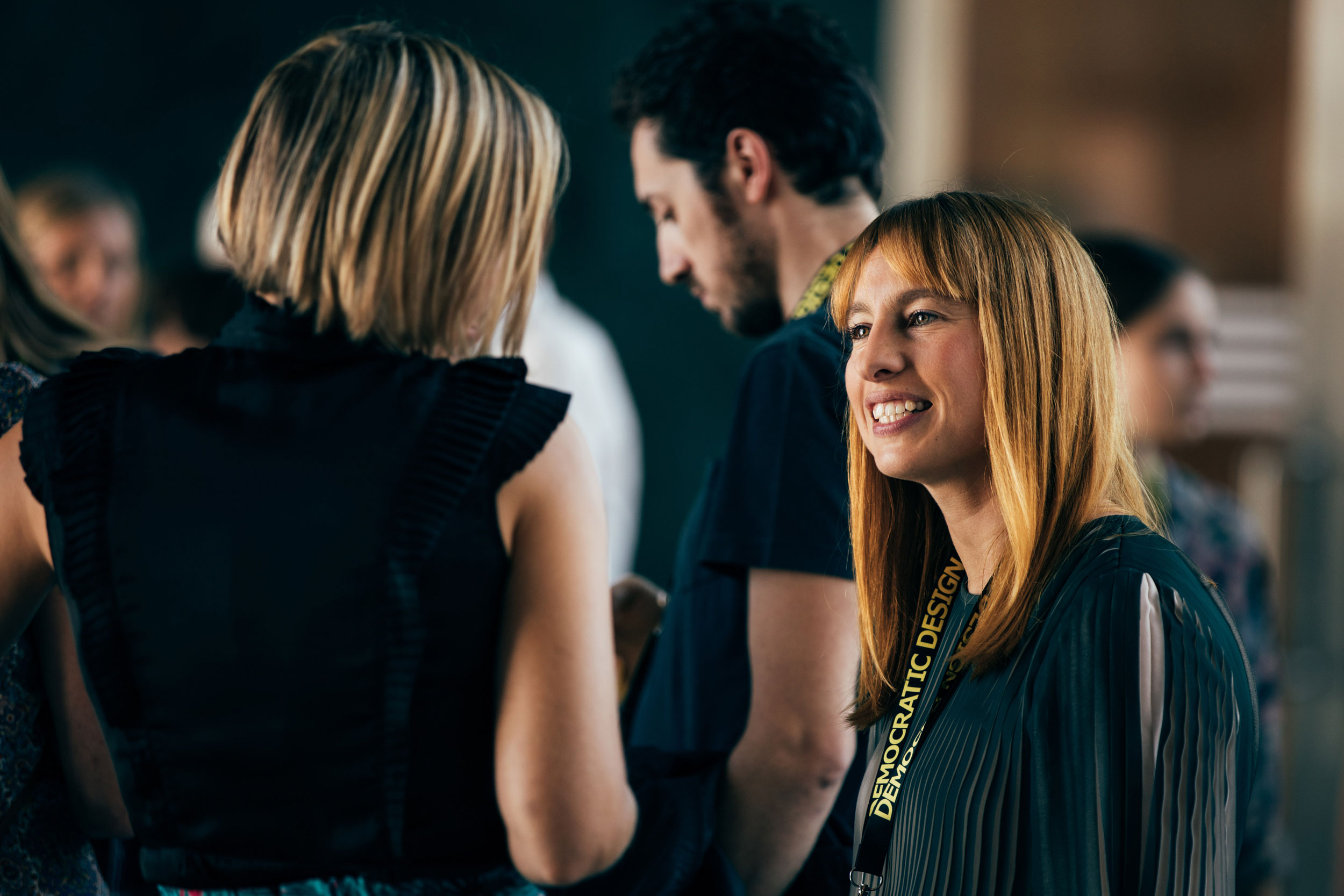Democratic Design Day 2018: Already thinking about tomorrow today
Giulia Bernardi • 20.09.2018
«Navigating an uncertain world through design» was the title of this year’s Democratic Design Day. As part of a one-day series of presentations, seven speakers illustrated how we can create the world of tomorrow through sustainable economic systems and innovative design strategies.
The present day seems as uncertain as our future: This is because climate change, scarcity of resources and continuing digitalisation mean we are constantly facing new challenges, which we must deal with.
Contemporary problems and possible solutions were also the subject of Democratic Design Day 2018, an annual series of presentations, which was held on 14 September in Lugano.
The series was opened by the Venezuelan scientist Carlota Perez, who argued for intelligent and environmentally-conscious economic growth. A new lifestyle is necessary in order to achieve this, a «smart green – sharing – lifestyle», which should be promoted through a corresponding re-think at a political and entrepreneurial level. In doing so, new technological inventions must be used and there must be a transition from a product-oriented to a service-oriented economy. This is because items that are seldom used do not necessarily have to be in one’s own possession, but merely need to be accessible. This change would not only lead to an economic, but also a social change and fundamentally alter our attitude to goods and resources.
For Perez the circular flow economy also plays a major role, which Simon Widmer, Project Manager at the Ellen MacArthur Foundation, is also in favour of. This is because natural resources should be used as efficiently as possible and not wasted in the linear production flow. Furthermore, products should consist of materials that can be recycled, have as long a life as possible or that can be re-used.
The ‹The New Plastics Economy› initiative, which was launched this year by the Ellen MacArthur Foundation, is also based on these three principles. Through collaboration with companies, towns and research institutes, more sustainable alternatives are intended to reduce the use of plastic utensils and packaging. A good example of this is the British start-up CupClub, which produces paper cups from a cellulose-based material that can be re-used up to 1,000 times. The used cups are collected at the corresponding collection point, cleaned and then re-distributed. A tracking system based on so-called RFID technology supplies information about how often a cup has already been used and ensures that they don’t end up in a landfill site too early.
This clearly shows: In order to establish such alternatives on a sustainable basis, both company strategies as well as the behaviour of users has to change. Projects such as the ‹CoLab› platform of the IDEO agency are intended to contribute towards this. This brings together companies, academics and designers from different disciplines to work out joint solutions for existing problems or new design strategies.
An example of the company’s collaborative strategy is the ‹Concept Kitchen 2025› project. Together with Lund University and the Design Academy Eindhoven, IDEO London has developed a outline for the kitchen of the future. This takes account of various global developments, such as advancing digitalisation or the scarcity of resources. In order to avoid unnecessary purchases, the idea arose of not keeping groceries in the fridge, where they are easily overlooked, but on an open shelf. The latter was equipped with induction cooling, which ensures individual cooling of the food at the right temperature and saves more energy than conventional fridges.
These are only a few of the initiatives that were presented during the Democratic Design Day 2018. However, they make it clear how economic systems and traditional company strategies can be reinvented through collaborative, interdisciplinary projects and technological achievements. And the most important thing: Intelligently designed products possess the ability to highlight our user behaviour and to change it on a long-term basis; so that we really do already think of tomorrow today.
